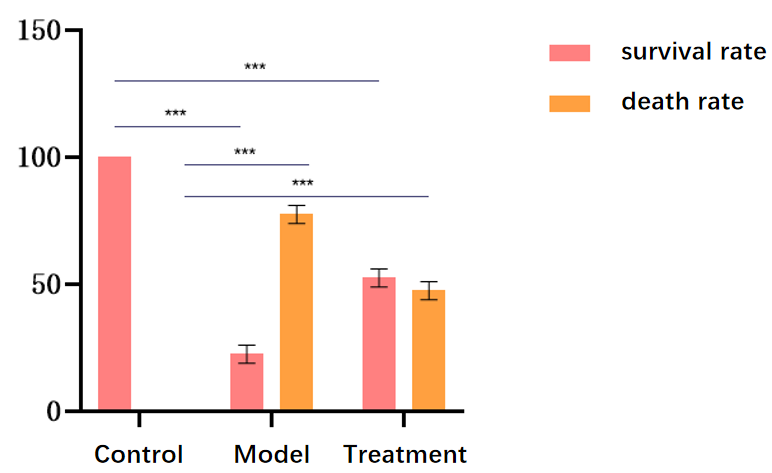Hypoxic/Hypoxia Analysis Services
Hypoxia decreases metabolic rate, increases glycolysis, and halts or shows cell cycle. When the oxygen concentration in the environment decreases, C. elegans initiates a series of complex cell signaling pathways to cope with this challenge, including protein expression, metabolic reprogramming, and cell structure adjustment. The services help you analyze how C. elegans regulates gene expression, metabolic pathways, oxygen sensing mechanisms, and cell survival strategies in hypoxic environments, revealing adaptive responses and survival mechanisms under low oxygen or hypoxic stress. This service provides important data support for studying the effects of insufficient oxygen supply on the health of organisms, exploring the potential mechanisms of hypoxic diseases, and evaluating the impact of environmental changes on ecosystems.
Our Services
SunyBiotech provides a wide range of comprehensive C. elegans hypoxia stress analysis services to help you further explore the hypoxia stress mechanism of eukaryotic organisms and provide potential targets for drug discovery. Our services include but are not limited to:
ØHypoxia Model Construction
Develop anoxic conditions for C. elegans cultured in media mixed with compounds.
ØPhenotypic hypoxic Stress Response Analysis
Perform survival rate and behavioral analysis.
ØAnti-hypoxic Stress Compounds Screening
Screen drugs or natural active substances with potential therapeutic value.
ØGenetic and Molecular Analysis of Hypoxia Stress Response Processes
Identify genes and signaling pathways involved in hypoxic stress responses, including manipulating specific genes or types of molecules and observing the response of C. elegans to stress to reveal the underlying mechanisms.

Fig.1 Mortality and survival rate of Caenorhabditis elegans after treatment with a certain drug
Related Services
H005-Head thrashes assay
H007-Lifespan assay
C002-Quantitative Real-time PCR
D002-Transcriptome sequencing


